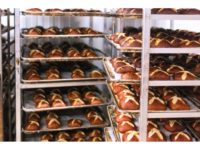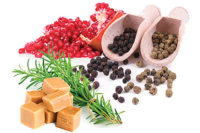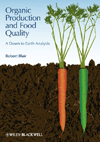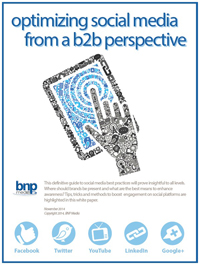Processing Technology
Filling a niche










Bakers thinking of expanding into niche product categories—bars, cakes, muffins and hand-held ethnic foods, for instance—don’t have to worry about finding the right equipment for the job. Some equipment manufacturers have been offering machinery for years capable of producing and handling such products.
Designed in the late 1960s for hand-held fruit pies, Colborne Foodbotics’ T-28000 turnover system produces ethnic turnover products, including calzones, empanadas, pierogies and Jamaican beef patties pies, according to Rick Hoskins, director of sales and marketing at the Lake Forest, Ill., company.
“The T-28000 is able to reduce labor costs because it’ a fully automated design [capable of] handling the product from the dough sheeting to filling to crimping to removal,” he says. “Over the years, it has emerged as a simple, high-speed, yet cost-effective, system to automate the production of many niche ethnic food products.”
Today’s T-28000 features several new enhancements, including trimmer dies and shapes that replicate handmade production and filler accessories that allow users to incorporate more difficult-to-use fillings with large particulates, such as meat, vegetables and cheese. “Our ability to integrate a large variety of filler types makes this system extremely flexible to handle a wide variety of fillings for different products,” Hoskins says. Other enhancements are central lubrication, an AC variable-speed (ACVS) main drive and variable-speed rollers for developed dough.
The system’s compact footprint, combined with its high-speed sheeting capability, makes the unit well-suited for small operations that often produce a lot of volume in a confined area, like a small warehouse or restaurant kitchen.
And because such businesses typically have limited people power, they’ll appreciate that only one user is needed to operate the T-28000. “The operator only needs minimal experience,” Hoskins adds. “The tools are easy to changeover and adjust, plus the speeds are easy to set.”
The gluten-free niche
Martin Riis, product manager at Unifiller, Delta, B.C., considers manufacturing gluten-free products niche production. “I’m very passionate about gluten-free,” he says. “I’ve been in this industry for nearly 17 years, and have seen trends come and go, but I find that the gluten-free is one that’s here to stay. We’ve seen more and more people wanting to get into gluten-free products.”
Unifiller’s Dopositor, a cookie dough extruder that has been in the company’s line for about eight years, is not only suitable for cookies, biscuits, bars, scones, shortbread and biscotti, but it also accommodates “lots of gluten-free products—cookies, bread, buns, rolls” says Riss.
“Gluten-free is very different in consistency than regular bread or to what we traditionally know as bread products and dough. That’s where the Dopositor really caters to that market.”
In addition to accommodating a broad range of product consistencies, the Dopositor handles a wide range of volume. “Often, [niche production] is a smaller production run and requires smaller batches,” explains Riis. Still, the compact machine can process 10,000-12,000 lb. of gluten-free cookie dough per hour and 6,000-8,000 lb. of gluten-free bread dough per hour.
Unifiller offers three Dopositor models: Mini; standard; and heavy-duty.
With a compact design and small footprint, the mini Dopositor caters to mom-and-pop bakeries with one to 10 employees, says Riis. It processes up to about 1,000 lb. of dough or produces up to 3,600 deposits per hour. Two control options are available (programmable logic controller [PLC] or manual) as are multiple nozzles and shapes.
The standard model can handles up to about 12,000 lb. of cookie dough or produce up to 14,400 pieces per hour (with a four-across die). “It can also do 6,000-7,000 gluten-free loaves an hour,” says Riis. “That’s the [model] we’ve seen the biggest demand for. It fits into midsize bakeries that have some volume. They supply grocery stores, foodservice and that [customers] like that.” The standard unit also has an integrated conveyor, PLC controls with three functions and an optional knife blade or wire cutoff.
The heavy-duty Dopositor is designed for industrial-scale use. “We often integrate this system into existing processing lines,” Riis explains. “If a customer sells frozen cookie dough, for example, we integrate that machine in existing tunnel freezers, small freezers or over existing oven bands.”
Like Unifiller’s other equipment, the Dopositor is designed to be easy to clean and sanitize. No tools are required to dismantle and clean the models, enable production workers to clean the machines on the floor.
Handling niche products
Niche production is also about more than just manufacturing. It also involves packaging the end product.
“As far as niche production goes, for us, it’s an area of automation specific to a particular type of food handling, be it our needle grippers for the bakery industry or bag grippers that we use for palletizing various food products after they’ve been bagged,” says John Westbeld, engineering manager, SAS Automation LLC, Xenia, Ohio.
About two years ago, the company introduced a depanning system designed specifically to handle 4.5-oz. muffins. The system features curved, stainless-steel needle grippers that can depan 144 muffins from moving baking pans at a rate of nine picks and 1,296 muffins/minute or 1.4 million muffins/day.
“Each of the 144 muffins that are picked up with one cycle has its own, independent needle gripper,” Westbeld explains. “We are picking them up, out of the baking pan, and then adjusting the center pitch in two directions—X and Y—so that the muffins line up to the wholesale trays, so that we can load them right into the trays from the baking pan.”
According to general manager Rob Dolton, “The initial tool that we built is for the large, 4.5-oz. muffins, where the tops are very irregular and have cracks, so we can’t use vacuum [depanning]. That’s why we designed a needle-style gripper. We borrowed the idea for certain types of needle grippers for other applications in other industries, and transformed it for this application. Each of these needle grippers has four needles that are curved, so when they go down into the muffin, they’re able to get a good grip on it to get it out of the pan. Then, the needles retract back out through the same angled hole, so you don’t create a lot of damage to the top.”
Since the tool was designed for food applications, it had to meet sanitation specifications. “Most of the metallic parts are stainless-steel, so they can be washed down,” Westbeld explains. “The plastic parts are also a Food and Drug Administration-compliant material. When you design a food-grade tool, you want to decrease the amount of build-up areas anywhere on the tool.”
End-user training is minimal, focusing more on maintenance and cleaning. “A robotic integrator programs the pick points and fires the inputs and outputs to actuate the needle grippers and the array of cylinders,” says Westbeld, adding that the company recommends customers keep spare parts on hand. “Since these are custom-type tools, replacement parts can typically be two to three weeks away.”
Bakers contemplating adding a niche product line to their offerings shouldn’t let equipment considerations curtail their plans. There’s a good chance that the machinery they’ll need is already available.
Looking for a reprint of this article?
From high-res PDFs to custom plaques, order your copy today!














